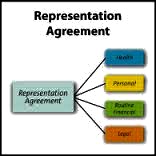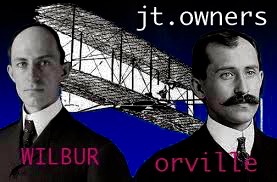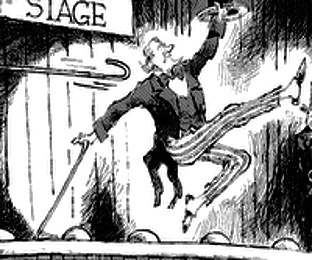NOTE: This Court of Appeal Decision was over turned by the Supreme Court of Canada 2017 SCC 61 and the claim was allowed
See blog entry dated February 2,2018
The BC Appeal Court in Cowper-Smith v Morgan 2016 BCCA 200 allowed an appeal in part to over turn the successful the claim brought for proprietary estoppel at trial by finding that the claim should not be allowed where a non owner of property gave assurances and a reliance thereon with respect to her future intentions based on the assumption she would inherit from her mother the owner., when she might not. Since the sister had no enforceable equitable or legal right to the property at the critical time being when the representation was made, the brother should not have relied upon it.
The deceased mother transferred her house into joint tenancy with her daughter in 2001. In 2002 the mother made a will leaving her estate equally to her three children. The mother’s investment accounts were over several years transferred into joint names with the daughter.
A declaration of trust for the house and bank assets was signed in 2001.
The defendant sister told her siblings that the house was put into her name only so she could assist in their mother’s affairs and would all eventually go to her mother’s estate.
The defendant daughter promised to sell one of her brothers her anticipated 1/3 share in the house to lure him back to Canada to take care of his mother.
The trial and appeal courts over turned the transfers and distributed her estate equally as per her will on the basis of undue influence but the appeal over turned the portion of the judgement that allowed the brother to succeed on the basis that he relied upon the promise made by his sister, he took care of his mother for years, but the sister reneged on her promise to transfer to him her 1/3 of the house as she did not own it when she promised it.
The Appeal Court stated in part:
Commerce International Bank Ltd., [1982] Q.B. 84 (Eng. C.A.) at 122:
When the parties to a transaction proceed on the basis of an underlying assumption (either of fact or of law, and whether due to misrepresentation or mistake, makes no difference), on which they have conducted the dealings between them, neither of them will be allowed to go back on that assumption when it would be unfair or unjust to allow him to do so. If one of them does seek to go back on it, the courts will give the other such remedy as the equity of the case demands.
70 While the principles of fairness and flexibility have informed the modern approach to the application of proprietary estoppel, as adopted by this Court in its jurisprudence (see Idle-O Apartments Inc. v. Charlyn Investments Ltd., 2014 BCCA 451 (B.C. C.A.) at para. 49; Sabey v. von Hopffgarten Estate, 2014 BCCA 360 (B.C. C.A.); Scholz v. Scholz, 2013 BCCA 309 (B.C. C.A.) at para. 31; Sykes v. Rosebery Parklands Development Society, 2011 BCCA 15 (B.C. C.A.) at paras. 44-46; Erickson v. Jones, 2008 BCCA 379 (B.C. C.A.) at paras. 52-57; Trethewey-Edge Dyking (District) v. Coniagas Ranches Ltd. [2003 CarswellBC 657 (B.C. C.A.)] at paras. 64-73; Zelmer v. Victor Projects Ltd. (1997), 34 B.C.L.R. (3d) 125 (B.C. C.A.) at paras. 36-37), there remains a necessary balancing between an overly broad application of the doctrine under the general guise of “unfairness” and an overly narrow application of the doctrine that places excessive weight on the technical requirements of the doctrine. See Lord Scott’s observations in Cobbe v. Yeoman’s Row Management Ltd., [2008] UKHL 55 (U.K. H.L.) in contrast to Lord Neuberger’s comments in Thorner v. Major, [2009] UKHL 18 (U.K. H.L.).
71 These underlying rationales and explanations for the evolution of the doctrine have led to its modern iteration as enunciated by Madam Justice Bennett in Sabey and affirmed by Madam Justice Newbury in Idle-O Apartments Inc. at para. 49:
[49] From the foregoing I infer that although proprietary estoppel is, like most equitable remedies, flexible and aimed at doing justice, and although the basic elements of the doctrine are not to be technically confined, those elements must still be made out and an equity established. I reproduce again the encapsulation of the doctrine provided recently in Sabey:
Is an equity established? An equity will be established where:
There was an assurance or representation, attributable to the owner, that the claimant has or will have some right to the property, and
The claimant relied on this assurance to his or her detriment so that it would be unconscionable for the owner to go back on that assurance.
If an equity is established, the court must determine the extent of the equity and the remedy appropriate to satisfy the equity.
72 As was noted by Bennett J.A. in Sabey, the bulk of the analysis occurs at the first stage, where “findings with regard to assurances, reliance and detriment are made” and where the court must determine whether it would be unconscionable for the person “to fail to make good on a promise to create a legal right in favour of someone else” (at para. 27).
73 Thus, the elements of the modern doctrine of proprietary estoppel require:
(i) an assurance or representation by the defendant that leads the claimant to form a mistaken assumption or misapprehension that he or she has an interest in the property at issue;
(ii) a causative connection between the assurance or representation and the claimant’s reliance on the assumption such that the claimant changes his or her course of conduct; (
iii) a detriment suffered by the claimant that flows from his or her reliance on the assumption, which causes the unfairness and underpins the proprietary estoppel; and
(iv) a sufficient property right held by the defendant that could be transferred to satisfy the right claimed by the claimant.
The Majority of the Court held:
98 There is no doubt that the applicable standard of review in this case is that described by Newbury J.A. in Idle-O Apartments Inc. as follows (at para. 72):
[72] At the outset, I note that the granting of a remedy for proprietary estoppel is a discretionary matter that attracts a high degree of appellate [deference]. The classic statement of the applicable standard of review may be found in Friends of the Old Man River Society v. Canada (Minister of Transport), [1992] 1 S.C.R. 3, where the Court quoted with approval the following passage from Charles Osenton & Co. v. Johnston, [1942] A.C. 130 (H.L.):
The law as to the reversal by a court of appeal of an order made by the judge below in the exercise of his discretion is well-established, and any difficulty that arises is due only to the application of well-settled principles in an individual case. The appellate tribunal is not at liberty merely to substitute its own exercise of discretion for the discretion already exercised by the judge. In other words, appellate authorities ought not to reverse the order merely because they would themselves have exercised the original discretion, had it attached to them, in a different way. But if the appellate tribunal reaches the clear conclusion that there has been a wrongful exercise of discretion in that no weight, or no sufficient weight, has been given to relevant considerations such as those urged before us by the appellant, then the reversal of the order on appeal may be justified…(See also Wenngatz v. 371431 Alberta Ltd., 2013 BCCA 225 at para. 9; Stone v. Ellerman, 2009 BCCA 294 at para. 94; and Harper v. Canada (Attorney General), 2000 SCC 57at para. 26.)
99 In considering whether there has been a wrongful exercise of discretion, I begin by noting that in Uglow v. Uglow, [2004] EWCA Civ 987 (Eng. & Wales C.A. (Civil)) at para. 9, the Court of Appeal described the following general principle:
The overriding concern of equity to prevent unconscionable conduct permeates all the different elements of the doctrine of proprietary estoppel; assurance, reliance, detriment and satisfaction are all intertwined.
100 In my view, the assurance given by Gloria to Max in this case was so based on uncertainty as to undermine any claim based on proprietary estoppel and that uncertainty goes to the root of reliance. The uncertainty arises from the fact that both at the time the assurance was given by Gloria and at the time Max acted upon the assurance, the Property was owned by Elizabeth; that is, Gloria had no beneficial interest in the Property and was uncertain what interest she would eventually inherit, if any. In the circumstances, Max cannot have been reasonably certain Gloria could do what she represented she would do. His hope and belief, initiated and encouraged by her, that he would likely be given the opportunity to buy whatever interest Gloria might inherit does not give rise to an interest in his mother’s estate. With respect, I do not agree with Smith J.A.’s view that Gloria’s “clear entitlement to a one-third interest in the Property at the time of the judge’s order” is relevant to whether an estoppel arose when Max acted upon the assurance given to him.
101 In relation to reliance as an essential element of a claim founded upon proprietary estoppel, Snell’s Equity, 31st ed (London: Sweet and Maxwell, 2005) says, at §10-18:
A must have acted in the belief either that he or she already owned a sufficient interest in O’s property to justify the expenditure or that he or she would obtain such an interest although it is not necessary for A to establish that he or she had an expectation in relation to a specific or clearly identified piece of property. But if A has no such belief, and improves land in which he knows he has no interest or merely the interest of the tenant, or licensee or as an occupier who incurs expenditure in the hope of obtaining planning permission and then entering into a contract to buy the land, he or she has no equity in respect of his expenditure. It is not sufficient that A believes he will obtain an interest over O’s property if he is also aware that O may change his mind.
[Emphasis added.]
102 Snell’s Equity proposes that in order to establish the estoppel it is necessary for A to show that O “created or encouraged the belief or expectation on the part of A that O would not withdraw from the agreement in principle”. That is a description of a present and ongoing obligation.
103 The circumstances in the case at bar resemble those in the many reported inheritance cases, including In re Basham and Thorner v. Major, with an important exception: the assurance here did not come from the beneficial owner of the property interest. In my view, the interest found by the judge to have been wrongly obtained through undue influence in respect of the land transfer and Declaration of Trust cannot be regarded as sufficient interest to permit Gloria to make representations or give assurances that might give rise to a proprietary estoppel. The assurance Gloria gave to Max had nothing to do with an interest in the Property created by the transfer or Declaration of Trust (both of which she thought, at the time, to be intended to simply facilitate the handling of the estate). The interest she promised to Max was the right to buy her expected inheritance. She did not yet own that inheritance and might never have come into it.
104 Walker L.J., in the passage from Thorner cited by Smith J.A., was of the view that in order to constitute proprietary estoppel, “the assurances given to the claimant (expressly or impliedly, or, in standing-by cases, tacitly) should relate to identified property owned (or, perhaps, about to be owned) by the defendant” (emphasis added).
105 Walker L.J. does not expand upon his view that an estoppel may arise from assurances made by one who is about to be the owner of the property. Neither the source nor the extent of that qualification to simple ownership is described, other than by a reference later in the paragraph to Crabb v. Arun District Council, in which there is no discussion of property about to be owned by the Council that made the representation in that case. In fact, in Crabb there are repeated references to the legal rights of the person making the representation. Denning M.R. states: “Short of an actual promise, if he, by his words or conduct, so behaves as to lead another to believe that he will not insist on his strict legal rights — knowing or intending that the other will act on that belief — and he does so act, that again will raise an equity in favour of the other; and it is for a court of equity to say in what way the equity may be satisfied” (emphasis added). Scarman L.J., citing Willmott, notes: “the defendant, the possessor of the legal right, must have encouraged the plaintiff in his expenditure of money or in the other acts which he has done, either directly or by abstaining from asserting his legal right” (emphasis added). In short, there is nothing expressly stated in Crabb that contemplates an estoppel arising with respect to property that is other than legally owned by the person making the representation.
106 Even assuming there to be some basis for the view that proprietary estoppel might arise as a result of an assurance given by one about to be the owner of property, I would not expand that class of persons so far as to include a potential beneficiary who gives an assurance to another, years before the death of a testator, with respect to what she will do with an inheritance that she merely anticipates receiving, if the person receiving the assurance acts as requested in the meantime. Not only is there uncertainty, in such a case, with respect to the promisor’s ability to deliver a proprietary interest to the promisee at the time the assurance is given, the uncertainty is not resolved when the promisee acts in reliance upon the promise.
107 Leaving aside, for the moment, the question whether Gloria was in a position to exert undue influence upon her mother, there was uncertainty with respect to the property interest Max was being promised. First, there was uncertainty whether Gloria would inherit anything from her mother. She might have predeceased her mother. Her mother might have changed her will and left Gloria more or less than a one-third interest in the property. Her mother might have sold the house and moved into accommodation more suited to her declining health. Simply by liquidating her property Elizabeth Cowper-Smith would have precluded Max from asserting a right to buy anything from Gloria. Certainly it is not suggested that Elizabeth was in any way restricted in her dealings with the property simply because her daughter made assurances to Max about what she would do on Elizabeth’s death.
108 Without exerting undue influence upon her mother, Gloria was not in a position to determine what property interest Max would receive in exchange for his move to Victoria. The fulfilment of Gloria’s promise was entirely conditional on her mother’s actions, which were outside her control.
109 Further, an obligation on Gloria’s part cannot have arisen before she inherited an interest in the Property. In this case, unlike the inheritance cases, no obligation arose simply as a result of the reliance upon the assurance. Where the assurance comes from the testator, the estoppel arises because there has been such reliance, making it inequitable to permit the testator to resile from the promise. A remedy is available before the testator’s death. As noted by Mummery L.J. in Uglow, proprietary estoppel may be relied upon to prevent a testator from making a will giving specific property to one person, if by his conduct he has previously created the expectation in a different person that he will inherit it:
The testator’s assurance that he will leave specific property to a person by will may thus become irrevocable as a result of the other’s detrimental reliance on the assurance, even though the testator’s power of testamentary disposition to which the assurance is linked is inherently revocable.
110 As Professor MacDougall observes in Estoppel at §6.38, there is a temporal element to proprietary estoppel. The demands of equity and how they are properly satisfied may change over time; but the equity arises when there is reliance. That is the foundation for what he describes at §6.73 as a “more orthodox approach” to the question we face than that which is taken by Smith J.A.:
… [P]roprietary estoppel will not apply where the owner in fact has no existing rights with respect to the property in question when the equity would otherwise arise — i.e., at the time of the detrimental reliance.
111 Uncertainty with respect to the promisor’s ability to fulfill the promise is closely related to the concept of reliance. Key to the acquisition of a proprietary interest by estoppel is the principle that it is unconscionable to permit a person to fail to keep a promise made and reasonably relied upon by the promisee. How can there be reasonable reliance upon a promise to convey an interest in property made by one who does not have such an interest or whose interest is uncertain?
112 Like my colleague, I recognize the evolution of the law of proprietary estoppel has been marked by tensions between, on the one hand, broad principles of flexibility and fairness, and on the other hand, narrow technical requirements. While the jurisprudence tells us that proprietary estoppel is no longer a “Procrustean bed constructed from some unalterable criteria” (see Idle-O Apartments Inc. at para. 23), the Court in Crabb nonetheless insisted the exercise of equitable jurisdiction be rooted in identifiable principles. To that end, the Court adopted the words of Harman L.J. in Bridge v. Campbell Discount Co., [1961] 1 Q.B. 445 (Eng. C.A.) at 459:
Equitable principles are … perhaps rather too often bandied about in common law courts as though the Chancellor still had only the length of his own foot to measure when coming to a conclusion. Since the time of Lord Eldon the system of equity for good or evil has been a very precise one, and equitable jurisdiction is exercised on well-known principles.
113 I do not read this Court’s judgment in Idle-O Apartments Inc. as suggesting that uncertainty that undermines reliance on a representation may be disregarded. To the contrary, when the Court considered whether an equity was established (at para. 23) it required the claimant to establish he believed in the existence of “a right created or encouraged by the words or the actions of the other party such that it would be unfair, unjust or unconscionable to allow the representor to set up its undoubted rights against the claimant”. At para. 57, the Court referred with approval to the trial judge’s recognition that detrimental reliance on the part of the claimant “underpins the claim and establishes the unfairness or unjustness that ought to be addressed by equity. Without such, … the doctrine may become ‘somewhat pointless’ and a ‘circumlocution for doing justice’.”
114 Newbury J.A., after describing the evolving conception of the scope of proprietary estoppel, noted:
[48] This court has adopted the “broader” approach to proprietary estoppel: see Zelmer at para. 49, Erickson at paras. 55-7, and most recently in Sabey at paras. 28-9. This approach is consistent with the judgment of Lord Denning in the seminal English case of Crabb v. Arun District Council, [1976] 1 Ch. D. 179 at 187-9; Oliver J. in Taylor Fashions; Buckley L.J. in Shaw v. Applegate, [1978] 1 All E.R. 123 at 130-1; and various other English authorities. On the other hand, English and Australian courts (and to some extent Canadian courts) have in recent years been at pains to emphasize that proprietary estoppel does not arise simply out of conduct that a court finds to be unconscionable. As observed by Lord Scott in Yeoman’s Row Management Ltd v. Cobbe, [2008] UKHL 55:
… unconscionability of conduct may well lead to a remedy but, in my opinion, proprietary estoppel cannot be the route to it unless the ingredients for a proprietary estoppel are present. These ingredients should include, in principle, a proprietary claim made by a claimant and an answer to that claim based on some fact, or some point of mixed fact and law, that the person against whom the claim is made can be estopped from asserting. To treat a “proprietary estoppel equity” as requiring neither a proprietary claim by the claimant nor an estoppel against the defendant but simply unconscionable behaviour is, in my respectful opinion, a recipe for confusion. [At para. 16.]
[Emphasis added.]
115 Professor MacDougall, at §6.34, echoes Lord Scott’s concerns, suggesting the doctrine of proprietary estoppel “should not be seen as a generalized remedial doctrine for unfairness.” Unfairness, in MacDougall’s view, is merely a general description of what the doctrine seeks to combat. Unfairness is not, in itself, an “overarching principle” that allows proprietary estoppel to be applied even in the absence of the typical requirements.
116 The Court in Idle-O Apartments Inc. further noted that the test for establishing a proprietary estoppel had recently been collapsed, in Sabey, into two components (see para. 30):
There was an assurance or representation, attributable to the owner, that the claimant has or will have some right to the property, and
The claimant relied on this assurance to his or her detriment so that it would be unconscionable for the owner to go back on that assurance.
[Emphasis added.]
117 While the criteria that define the limits of proprietary estoppel are not unalterable, I see no reason in principle why the cause of action should be expanded to permit a person to acquire an interest in property by reliance upon an assurance by a non-owner that falls short of a contractual obligation. Such an expansion would be problematic, untying entirely from its ties to property the only estoppel that can be used as a sword. I would not so extend the cause of action.
118 In my view, the fact Gloria used undue influence to obtain de facto control over the Property and Investments does not affect that conclusion. Max did not, in fact, rely upon that undue influence as assurance that Gloria would deliver on her promise. Even if he had known of the influence exerted by Gloria, equity should not come to the assistance of one who says he arranged his affairs in reliance upon a promise made by a person exerting improper control over a testator with respect to what she would do with the inheritance assured by the exercise of that control. In fairness to him it should be said that Max is not advancing that argument. Even so, the logic of that argument lies at the root of the proposition that undue influence distinguishes this case from others where a non-owner makes assurances about what rights an owner will exercise over property.
Conclusion
119 In the result, I would allow the appeal on this aspect of the order only and set aside the Order made in Max’s favour. In all other respects, I agree with my colleague’s reasons and conclusions.
Saunders J.A.:
I AGREE:
Appeal allowed in part.










